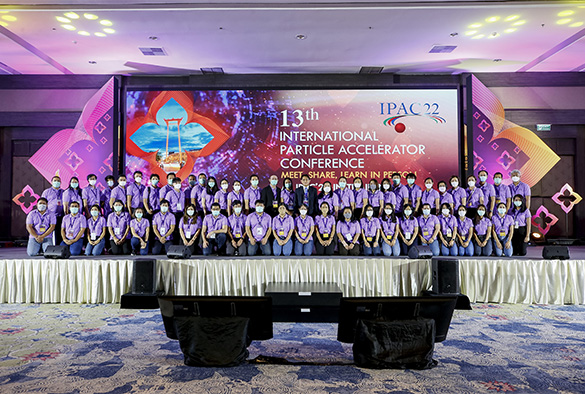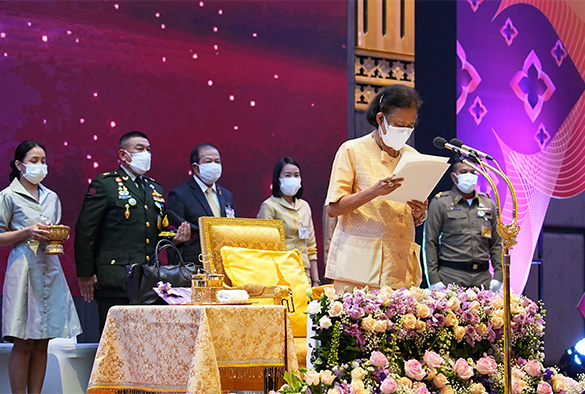QUASARs at IPAC’22 in the “Land of Smile”

The 13th International Particle Accelerator Conference (IPAC’22) was held in Bangkok, Thailand on 12-17 June 2022 at IMPACT Exhibition and Convention Centre, hosted by the Synchrotron Light Research Institute (SLRI). It was the first in-person IPAC after two years of interruption due to COVID-19 and attracted over 800 participants. The opening ceremony was held in the Grand Diamond Ballroom presided over by H.R.H. Princess Maha Chakri Sirindhorn featuring Special Plenary Talks from Fermilab USA, and SLRI Thailand.

Opening remarks by H.R.H. Princess Maha Chakri Sirindhorn. (Image credit: IPAC’22)
IPAC is the main international event for the worldwide accelerator community and industry. Attendees are presented with cutting-edge accelerator research and development results and gain the latest insights into accelerator facilities across the globe.
Prof Carsten Welsch, Dr Hao Zhang, as well as PhD students Monika Yadav, Félix Soubelet and Sara Morales Vigo represented the QUASAR Group at this important accelerator event. It was the ideal platform to showcase the results of the European training networks AVA and OMA, the output of the STFC Centre for Doctoral Training (CDT) LIV.DAT, and the Group’s world-class accelerator research and development - from beam characterization and optimization of medical accelerators to novel beam diagnostic techniques. QUASAR researchers contributed a total of 28 posters to the scientific programme at dedicated poster sessions, a focal point of the conference.
This was an excellent occasion to introduce the accelerator community to the brand-new CDT for Innovation in Data Intensive Science (LIV.INNO). The University of Liverpool, in partnership with Liverpool John Moores University and its international partners was awarded funding by the Science and Technology Facilities Council (STFC) to provide comprehensive training in data intensive science to a diverse cohort of PhD students. Data Intensive Science offers exciting prospects for accelerator design and operation. This includes the optimization of machine design and the reconstruction of transverse beam distributions using machine learning, as well as data analysis in high-frequency monitors.